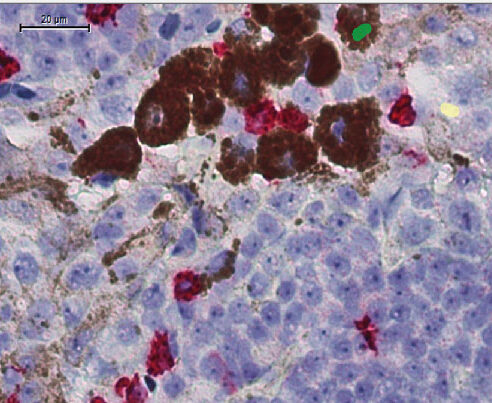
The Food and Drug Administration (FDA) has granted accelerated approval to lifileucel (Amtagvi, Iovance Biotherapeutics), a tumor-derived autologous T cell immunotherapy, for adult patients with unresectable or metastatic melanoma. It is the first, and the only one-time, T cell therapy to receive FDA approval for a solid tumor cancer. The application was granted Priority Review, Fast Track designation, Regenerative Medicine Advanced Therapy designation, and Orphan Drug designation.
“The approval of Amtagvi represents the culmination of scientific and clinical research efforts leading to a novel T cell immunotherapy for patients with limited treatment options,” said Peter Marks, MD, PhD, director of the FDA’s Center for Biologics Evaluation and Research (CBER), in a release.
An estimated 8,000 people in the U.S. alone die from melanoma each year. Until now, there have been no FDA-approved treatment options for patients with advanced melanoma whose disease progressed following initial treatment with an immune checkpoint inhibitor and, if appropriate, targeted therapy.
“The accelerated approval of Amtagvi is the first step in realizing Iovance’s ambition to usher in the next generation of cell therapy by bringing this breakthrough to patients with advanced solid tumors,” said Frederick Vogt, PhD, JD, interim chief executive officer and president of Iovance.
Amtagvi uses patient-specific T cells, called TIL cells. The immune system creates TIL cells to locate, attack, and destroy cancer naturally. TIL cells recognize distinctive tumor markers on the cell surface of each person’s cancer. When cancer grows, the body’s natural TIL cells can no longer perform their intended function to fight the disease.
The treatment is manufactured using a proprietary process to collect and expand a patient’s unique T cells from a portion of their tumor, returning billions of the patient’s T cells back to the body to fight their cancer. Authorized Treatment Centers (ATCs) will administer AMTAGVI to patients as part of a treatment regime. It is approved for patients previously treated with a PD-1 blocking antibody, and if BRAF V600 positive, a BRAF inhibitor with or without a MEK inhibitor.
The treatment was evaluated in C-144-01, a global, multicenter, multicohort, open-label, single-arm trial in 89 patients with unresectable or metastatic melanoma who had previously been treated with at least one systemic therapy, including a PD-1 blocking antibody, and if BRAF V600 mutation-positive, a BRAF inhibitor with or without a MEK inhibitor.
The median time to initial response to lifileucel was 1.5 months. Objective response rate (ORR) was based on 73 subjects who received lifileucel within the recommended dosing range of 7.5 x109 to 72×109 viable cells. ORR was 31.5%.
The ongoing TILVANCE-301 trial will evaluate the efficacy and safety of lifileucel plus pembrolizumab (pembro) compared with pembro alone in patients with untreated advanced melanoma.
“The approval of Amtagvi offers hope to those with advanced melanoma who have progressed following initial standard of care therapies, as the current treatment options are not effective for many patients,” said Samantha R. Guild, president, AIM at Melanoma Foundation. “This one-time cell therapy represents a promising innovation for the melanoma community, and we are excited by its potential to transform care for patients who are in dire need of additional therapeutic options.”













